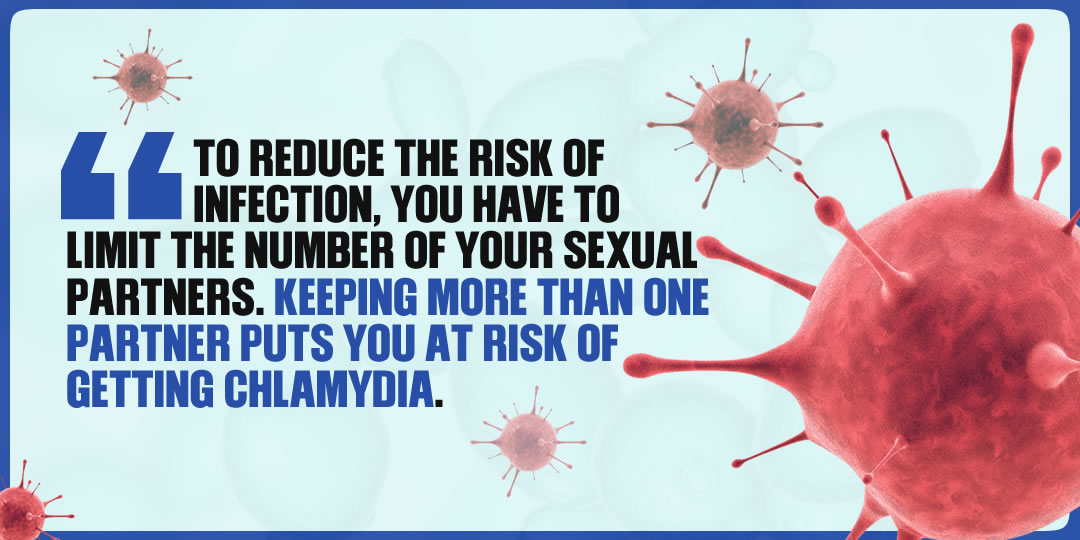Long term effects of chlamydia
It is common for people to have a chlamydial infection for years without knowing it because it doesn’t show symptoms during the early stages of infection most times. However, if left untreated, the long term effects of chlamydia can be pretty severe and sometimes irreparable health complications.
Chlamydia can trigger pelvic inflammatory disease in women after spreading to the womb, ovaries, or fallopian tubes. Long term effects of Chlamydia can include the scarring of the fallopian tubes, making it difficult for women to become pregnant.
In addition to causing infertility in women, some adverse effects can also include chronic pelvic or abdominal pain. In addition, bleeding between menstrual cycles, pain, discomfort during sex, and painful urination can also occur.
It is possible to have chlamydia spread to a newborn baby. Pregnant women with chlamydial infection can pass the infection to their babies during delivery. As a result, the baby might be born with lung or eye infections.
Men can also suffer infections of the urethra if they have an untreated chlamydial disease.

To reduce the risk of infection, you have to limit the number of your sexual partners. This is beneficial to your sexual health. Keeping more than one partner puts you at risk of getting this bacteria infection. In addition, you or your partner can have chlamydia without showing any apparent symptoms. Therefore, you should ensure regular chlamydia tests. Here is a Chlamydia fact sheet.
Long term effects of chlamydia in men
The CDC recommends that men who are sexually active must get screened for this infection regularly. The usual lack of visible chlamydia symptoms can lead a man to live with the infection without knowing it, thus leaving it untreated.
The long-term effect of this infection in men can include pain around the testicles and infertility.
Chlamydial infection can trigger a fever, scrotal pain, and swelling when it inflames the coiled tube beside each testicle.
Chlamydia can also cause severe complications like the infection of the urethra- the tube in the penis that urine and semen go through.
Reactive arthritis, or Reiter’s syndrome, is also one of the long-term effects of chlamydia. This condition affects the eyes, joints, and the tube that conveys urine from the bladder to outside the body- the urethra.
In addition, the chlamydia bacteria can spread to a man’s prostate gland causing postratis. As a result, men can experience pain during sex, fever and cold, painful urination, and lower back pain.
Long term effect on women
As noted earlier, untreated chlamydia can trigger several health complications in infected women. For instance, the infection can adversely affect a woman’s reproductive organs through PID.
This infection can lead to the inflammation of the ovaries, fallopian tubes, and uterus, leading to pelvic pain and infertility through the build-up of scar tissue. Most times, when chlamydia causes these adverse effects, the damage is nearly impossible to reverse.
Chlamydial infections also increase the risk of ectopic pregnancy in women. This complication occurs when a fertilized egg starts growing outside of the uterus in a fallopian tube. This can lead to a ruptured tube if the pregnancy is not removed.
Untreated chlamydia also increases your risk of contracting other sexually transmitted infections like syphilis and gonorrhea.
Can chlamydia go away without treatment?
It is unlikely that a chlamydial infection will go away without treatment. If symptoms of the infection appear, they might improve temporarily without treatment, but the bacteria may remain in the body. This can lead to severe complications and long term damages.
Therefore, it is vital to get screened, diagnosed, and treated immediately if you suspect you may have made contact with infected fluid.
How long can you be infected with chlamydia without knowing?
Chlamydia can remain in a person’s body for many years without showing obvious symptoms. In some cases, these symptoms show within 2-14 days of exposure to the bacteria.
Notwithstanding, most people can have chlamydia for many years without even knowing it; this is especially true for men.
If you are young and sexually active, it’s recommended that you get screened regularly to avoid the risks that come with leaving chlamydia untreated. If an infected person conducts a test, even when the infection shows no symptoms, they will test positive for chlamydia.
It is possible to have symptoms of chlamydial infection after treatment still.
What if I still have symptoms after Chlamydia treatment?
It is possible to have symptoms of this infection after treatment still. If your symptoms remain after a few days of treatment, you should return to your doctor for reevaluation. This is because repeat chlamydial infections are entirely possible and common.
This is why you should avoid sex until you have completed your treatment. In addition, you can get reinfected if your partner has not been correctly treated.
When to consult a doctor
You should reach out to your doctor once you suspect you have sexual contact with an infected person because Chlamydia is one of the most prevalent sexually transmitted diseases.
Your healthcare provider will recommend the next course of action, which may include screening and treatment options after being chlamydia diagnosed.
Frequently Asked Questions
Chlamydia is spread by the bacteria chlamydia trachomatis and can be treated with antibiotics even after a year of infection. If you’ve had chlamydia for a year or more, consult your doctor about possible screening and treatment options.
The symptoms of the infection are expected to improve a few days after starting your treatment. If you complete your recommended dosage, the infection should go away in one to two weeks.





